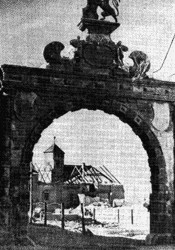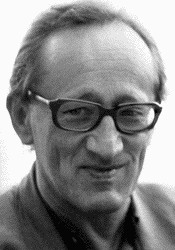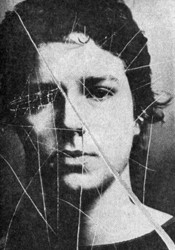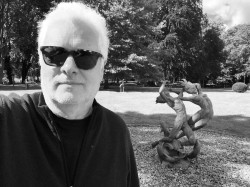Heiner Goebbels
Komponist, Regisseur
Heiner Goebbels, geboren 1952 in Neustadt/Weinstraße, aufgewachsen in Landau/Pfalz, lebt seit 1972 in Frankfurt/Main
Studium der Soziologie (Diplom) und Musik (Staatsexamen), ist Komponist, Regisseur, Theatermacher und Professor am Institut für Angewandte Theaterwissenschaft der Justus Liebig Universität Gießen (Schwerpunkt künstlerische Praxis), das er von 2003 bis 2011 auch als geschäftsführender Direktor geleitet hat. Präsident der Hessischen Theaterakademie (seit 2006).
Nach Kompositionen für Theater, Film, Ballett (Ende der 70er Jahre) wandte er sich seit Mitte der 80er Jahre szenischen Konzerten und komponierten Hörstücken zu (meist nach Texten von Heiner Müller), die vielfach preisgekrönt wurden: „Verkommenes Ufer“, „Die Befreiung des Prometheus“, „Wolokolamsker Chausee I – V“, „Shadow / Landscape with Argonauts“, „Der Horatier“ u.a.
Seit Mitte der 70er Jahre veröffentlichte er Plattenaufnahmen mit verschiedenen experimentellen Formationen (Duo Goebbels/Harth, Cassiber, Sogenanntes Linksradikales Blasorchester u.a.). Seit Beginn der 90er Jahre Kompositionen und Regie eigener Musiktheaterstücke, sowie zahlreiche Kompositionen für Ensemble und großes Orchester, die weltweit auf Theater- und Musik-Festivals aufgeführt werden. "Surrogate Cities" für großes Orchester wurde 1994 uraufgeführt, seine wichtigsten Musiktheaterarbeiten sind "Ou bien le débarquement désastreux" (1993) nach Texten von Conrad, Ponge, Heiner Müller, "Die Wiederholung" nach Texten von Kierkegaard (1995); "Schwarz auf Weiss" (1996) und "Eislermaterial" (1998) mit dem Ensemble Modern, "Max Black" (1998) nach Texten von Paul Valery, "Hashirigaki" (2000) nach Texten von Gertrude Stein, "Eraritjaritjaka" (2004) nach Texten von Elias Canetti, "Stifters Dinge" (2007), "Songs of wars I have seen" (2007) und "When the Mountain changed its clothing "(2012). 2002 wurde seine Oper "Landschaft mit entfernten Verwandten" in Genf uraufgeführt, 2003 die Orchesterkomposition "Aus einem Tagebuch" als Auftragswerk der Berliner Philharmoniker (Ltg. Sir Simon Rattle). 2003/2004 war er Composer in Residence beim Lucerne Festival und bei den Bochumer Symphonikern. 2007/2008 Fellow am Wissenschaftskolleg Berlin.
Von 2012 bis 2014 war Heiner Goebbels künstlerischer Leiter der Ruhrtriennale - International Festival of the Arts, und kuratierte und produzierte neue Arbeiten von Robert Wilson, Romeo Castellucci, Michal Rovner, Boris Charmatz, Robert Lepage, Jan Lauwers, Ryoji Ikeda, Douglas Gordon, William Forsythe, Lemi Ponifasio, Mathilde Monnier, Saburo Teshigawara, Anne Teresa de Keersmaker, Rimini Protokoll, Tim Etchells, Gregor Schneider und vielen anderen. Er selbst inszenierte drei große Musiktheaterwerke des 20. Jahrhunderts, die bislang vom Repertoire der Opernhäuser weltweit ignoriert worden waren: "Europeras 1&2" von John Cage (2012), "Delusion of the Fury" von Harry Partch (2013) und "De Materie" von Louis Andriessen (2014). Installationen und Performances: Centre Pompidou Paris 2000, Musée d'Art Contemporain Lyon 2014, Museum Mathildenhöhe Darmstadt 2012, Documenta 82/87/97, Artangel London 2012, Albertinum/Lipsiusbau Dresden 2016 u.a. Zahlreiche Vorträge, Aufsätze und Veröffentlichungen (Anthologie "Komposition als Inszenierung" 2002, "Ästhetik der Abwesenheit" 2012). Seine Anthologien mit seinen Texten zu Musik und Theater sind auch in englischer, russischer und polnischer Sprache erschienen. Er veröffentlichte zahlreiche CDs und wurde mit zwei dieser Produktionen für einen Grammy nominiert.
Heiner Goebbels ist Mitglied der Akademie der darstellenden Künste, Frankfurt/Bensheim, sowie den Akademien der Künste, Berlin, Düsseldorf, Mainz und München; Honorable Fellow am Dartington College of Arts, Träger des Hessischen Kulturpreises und der Goethe Plakette der Stadt Frankfurt. 2001 wurde er mit dem Europäischen Theaterpreis „Neue Theaterrealitäten“ ausgezeichnet; 2012 mit einem Ehrendoktor der Birmingham University und mit dem International Ibsen Award, einem der weltweit wichtigsten Theaterpreise.
Heiner Goebbels was born in Neustadt / Weinstraße in 1952, grew up in Landau / Pfalz, and has been living in Frankfurt, Main since 1972.
With a degree in sociology and music, he is a composer, director and professor at the Institute for Applied Theater Science at the Justus Liebig University of Gießen (with a focus on artistic practice), which he also headed as managing director from 2003 to 2011. He was President of the Hessian Theater Academy (since 2006).
After composing for theater, film and ballet (end of the 70s), since the middle of the 80s, he has turned to scenic concerts and composed listening pieces (mostly according to texts by Heiner Müller), which were awarded many times: “Despoiled Shore,” “Die Befreiung des Prometheus,” “Volokolamsk Highway I – V,” “Shadow / Landscape with Argonauts,” and “The Horatians” among others.
Since the mid-1970s, he has published recordings with various experimental formations (Duo Goebbels / Harth, Cassiber, So-Called Left Radical Wind Orchestra, etc.).
Since the beginning of the 90s, he has composed and directed his own musical theatrical works, as well as numerous compositions for ensembles and large orchestras, which are performed worldwide at theater and music festivals. “Surrogate Cities” for large orchestras premiered in 1994, and his most important musical works are “Ou bien le débarquement désastreux” (1993) by Conrad, Ponge, Heiner Müller, “Die Wiederholung” (Kierkegaard, 1995); “Schwarz auf Weiss” (1996) and “Eislermaterial” (1998) with Ensemble Modern, “Max Black” (1998), with texts by Paul Valery, "Hashirigaki" (2000) by Gertrude Stein, “Eraritjaritjaka” (2004) with texts by Elias Canetti, “Stifters Dinge” (2007), “Songs of wars I have seen” (2007) and “When the Mountain changed his clothing” (2012). In 2002 his opera “Landscape with Distant Relatives” premiered in Geneva, in 2003 the orchestral composition “Aus einem Tagebuch” was commissioned by the Berlin Philharmonic (Sir Simon Rattle). In 2003/2004 he was Composer in Residence at the Lucerne Festival and the Bochum Symphoniker. In 2007/2008 he became a fellow at the Wissenschaftskolleg Berlin.
From 2012 to 2014, Heiner Goebbels was artistic director of the Ruhrtriennale - International Festival of the Arts, and curated and produced new works by Robert Wilson, Romeo Castellucci, Michal Rovner, Boris Charmatz, Robert Lepage, Jan Lauwers, Ryoji Ikeda, Douglas Gordon, William Forsythe, Lemi Ponifasio, Mathilde Monnier, Saburo Teshigawara, Anne Teresa de Keersmaker, Rimini Minutes, Tim Etchells, Gregor Schneider and many others. He himself directed three great works of the 20th century, which had previously been ignored by opera houses around the world: “Europeras 1 & 2” by John Cage (2012), “Delusion of the Fury” by Harry Partch (2013) and “De Materie” By Louis Andriessen (2014). Installations and performances: Center Pompidou Paris 2000, Musée d'Art Contemporain Lyon 2014, Museum Mathildenhöhe Darmstadt 2012, Documenta 82/87/97, Artangel London 2012, Albertinum / Lipsiusbau Dresden 2016, among others. He has published numerous lectures, essays and publications (anthology “Composition as Staging” 2002, “Aesthetics of Absence” 2012). His anthologies with his texts on music and theater have also appeared in English, Russian and Polish. He released numerous CDs and was nominated for a Grammy for two of these productions.
Heiner Goebbels is a member of the Academy of Performing Arts, Frankfurt/Bensheim, as well as the academies of the arts, Berlin, Düsseldorf, Mainz and Munich; he is also an Honorable fellow at the Dartington College of Arts, and a winner of the Hessian Cultural Prize and the Goethe plaque of the city of Frankfurt. In 2001 he was awarded the European Theater Prize “New Theater Realities”; in 2012 he received an honorary doctorate from Birmingham University and accepted the International Ibsen Award, one of the world's most important theater prizes.




